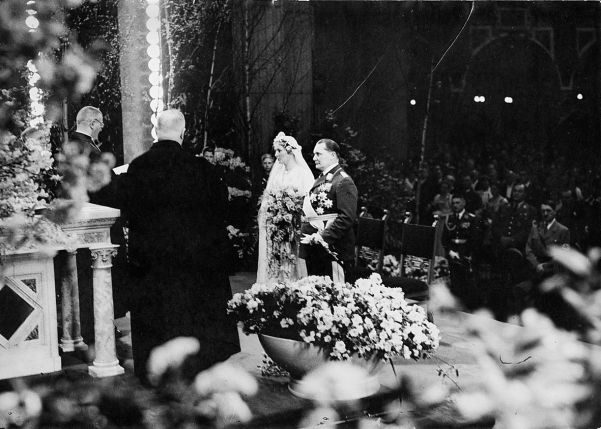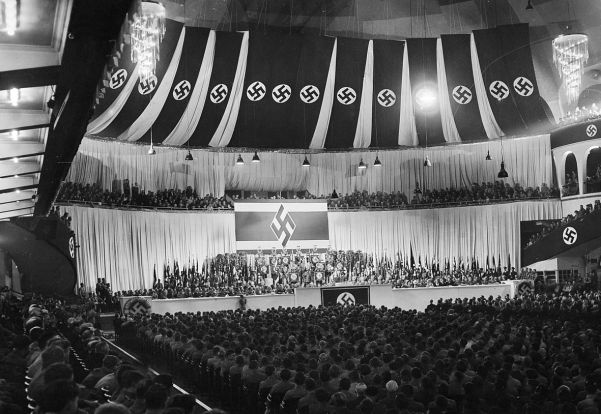18 June
Nazi Party, Ribbentrop Bureau


Under Hess’ secretariat the Ribbentrop Bureau is established in the Wilhelm Strasse, provocatively across the street from the foreign office. This is in direct opposition to the ministry, with the avowed objective of proving Nazi methods are more effective than the foreign ministry’s traditional policies. Careerists and journalists of dubious qualifications staff it.
Joachim von Ribbentrop, having served in 1934 as special commissioner for disarmament, seized his big chance when he was able to conclude the Anglo-German naval treaty in May 1935, unaided by foreign ministry officials, let alone having informed the ministry. The German object was to trap the British Government into an agreement to flout the naval restrictions of the Versailles Treaty. The British Government, with Anthony Eden the main negotiator, with what now seems a mixture of credulity and arrogance, fell into Ribbentrop’s trap. Neither the League of Nations nor Italy and France were consulted. The Anglo-German Naval Agreement was signed by Sir Samuel Hoare for Britain and by Special Envoy Joachim von Ribbentrop for Germany. His reputation, especially with Hitler, had now been definitely established. From Reichsführer-SS Himmler he received the honourary rank of SS-Gruppenführer. Hitler told Admiral Erich Raeder, Commander-in-Chief of the German Navy, that the day the agreement was signed was the happiest of his life. Raeder himself told his officers they could not have hoped for better conditions during the coming decade. He went on to say that the Agreement ruled out the possibility of Germany having to fight another war against Britain. With this agreement, Hitler hoped to show that he had no desire to conduct war against Britain. Germany volunteered to restrict her maritime strength to 35 percent of that of the Royal Navy. However, submarines were considered as a separate case, and a 45 percent ratio was agreed. Parity in submarines was also agreed in principle, but in that event Germany would have to sacrifice tonnage in other categories, and Britain would have to approve the move.
29 June
Armed Forces, Navy
The first of the new submarines, U-1, is commissioned.
